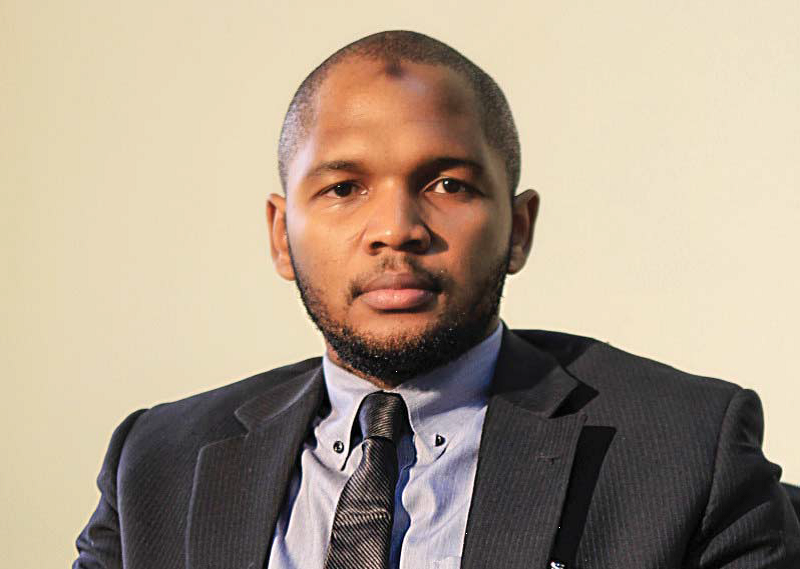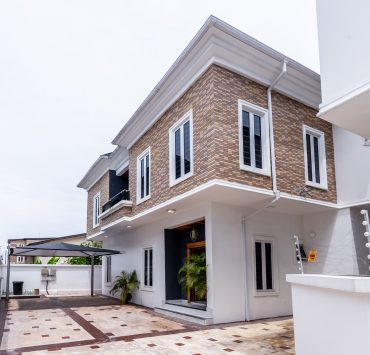
Kindly introduce yourself
My name is Muktar Aliyu, Executive Director and General Manager for Urban shelter Limited.
What are the key projects of Urban Shelter Limited?
Our current projects include:
i) Bella view residences- a premium and upscale development in Life camp, Abuja.
ii) Apo market- a commercial undertaking in the Apo resettlement area of Abuja.
iii) Brick city Spring- an affordable housing scheme that is a part of the Brick city residences , which is made up of 1,000 units of affordable houses situated in Kubwa, Abuja.
iv) Urban Shelter Head Quarters-15 floor office complex in the Central Business District of Abuja.
v) The Urban Shelter Square- Located by Kade Lake, Abuja (opposite Shoprite). It includes residences, hotels, retail spaces & green areas. This is an ambitious undertaking with a cost of roughly $200million, and a terminal value after 10years of approximately $500million.
How has Urban Shelter tackled affordable housing challenges in Nigeria?
We have adopted an approach that addresses the -problem from multiple angles. First, we addressed the price aspect by making our pricing very competitive. It’s possible to purchase and affordable house in Urban Shelter for as low as N4.5m, for a studio unit. Secondly, the cost of building is addressed by using materials produced locally and internally. These materials include bricks, which we manufacture directly, and use as partition walls, fence wall, and light weight slab material as a replacement for conventional concrete slabs.
Thirdly, we have considered the ability for buyers to pay for these houses more conveniently. In more developed economies, mortgages are accessible for a payment period of twenty to thirty years. On our side as developers, we have created the STAY & PAY™ system, which is a proprietary scheme by Urban shelter. With this scheme, a buyer can pay for a house over a five year period instead of the standard twelve to twenty-four months period the most developers offer their customers. It has proven to be very successful.
What is the affinity between Urban Shelter and the northern part of Nigeria?
Though the founders of Urban shelter are from the Northern part of Nigeria, precisely Niger state, as Urban shelter is a business organization, our ‘affinity’ is towards Nigeria as a whole: we do business across the North, South, East and Western part of Nigeria.
How viable is the investment market in the northern area of Nigeria?
Viability of investment in the north depends on what sector you are looking into. For instance, investment in the agricultural sector is worthwhile, based on factors such as robust availability of lands, availability of labour, etc.
For the real estate sector in Northern Nigeria, premium developments as found in Abuja, Lagos, etc, are not viable because incomes are much lower. Therefore, real estate investment in the north ought to be aimed at what is more germane and pertinent to that part of the country. Sites and services, as we have done in Niger, Kaduna, Sokoto, etc, are more viable in the northern part of the country because the price point for plots is much more commensurate with income levels in these regions. Our Sites and Services projects offer roads, power, and other infrastructure; thus, a person can purchase a plot of land with all the services, a clear title, then develop it into whatever they wish. As earlier mentioned, we have done this in a number of States, and we are looking to expand into other states such as Katsina, Yola, etc.
There are things we need to improve on. Approvals are a pain. Investors will definitely want to know how long it will take to get returns on their investments, and delays in approvals, are delays to an investor’s bottom line. Registering title deeds is expensive and painfully slow. This needs to be addressed. There are a lot of administrative aspects that need optimizing. On the whole, I commend the efforts of the government, as many of the policies they have put in place, in particular allowing a body like the NMRC to raise bonds backed by the Gov’t. This means local and international investors will be very comfortable putting money in these bonds. These monies will then trickle down into the housing finance sector and then to the person that needs to take out a loan to buy a house. Thus in the long run, good deal of fiscal policies by the government, and schemes of raising capital from the capital market will make the cost of interest come down, hopefully bringing home financing within reach.
With the variety of projects you handle, what financing option has worked best for you?
Financing is an integral part of real estate. We use a variety of financing options. The most successful is a
hybrid scheme where we use partly self financing (our capital) injected into projects, combined with commercial loans.
We are considering going into more complex financing schemes in the near future involving the investment public, where we can have multiple capital providers. This limits our exposure to the commercial loans we may need to take for a project. What is more important in these options is how much the funds cost, whether you are getting capital from a capital provider, loan from a bank, corporate bonds, etc, the rate being paid for the funds is the critical factor, whether this is in the form of interests rates, bond yields, or return on capital.
Historically, we have used the hybrid of self financing and loans from commercial banks. This has proven to be a successful model. Also, because our projects are well delivered, they do very well in the market. Thus deposits collected are redeployed into the project to complete the financing model.
How would you rate the government’s effort into real estate in Nigeria?
The government’s efforts as far as policies affecting real estate have been commendable. I can say that in the years that I have been in the real estate industry, this may be the first time we (by we I mean real estate practitioners and policy makers), have a full view and grasp of what the issues and concerns are. The basic framework for solving these problems are in place. Some of the organs of this system include the Federal Mortgage Bank of Nigeria (FBMN), which looks to provide funds at below 10% for people who want to buy houses. Also, the Nigerian Mortgage Refinancing Company (NMRC), which is an entity that refinances mortgages by raising money through the capital markets to provide funds to mortgage lenders, so that ultimately mortgages can be accessed at manageable rates. All of these organs combined make up the ‘financial ecosystem’ needed to make housing possible. The issues affecting real estate, and in particular liquidity in the housing sector did not come about in a day, it took years of neglect, poor planning and execution to create the problem. It will take years more, of good planning and execution to solve it. But I do believe we now have the framework in place.
What recommendation(s) will you give for policy reforms in the real estate sector?
The word ‘reform’ can be somewhat of a frightening proposition, depending on its context. The word contains the seeds of all-encompassing changes, and this makes people uneasy. I would say policy suggestions on top of what is currently in place, is my recommendation. I do not think a full reform in the real estate space would be pragmatic. The basic framework is in place as earlier mentioned, with the main organs of the financial ecosystem already playing major roles. My suggestion is to look at optimizing processes. For instance, how quickly it takes to apply for a mortgage; how quickly the mortgage is approved; how quickly the funds are disbursed, etc. The entire process must be efficient and time sensitive.
My second suggestion would be in the area of titles, in terms of getting proper titles and the cost of getting titles. The cost of getting titles in Nigeria is still among the highest in the world. This is a setback, and affects investment in the real estate space.
Thirdly, the need to find a way to make lands available. In more developed economies, assets not adequately serviced by paying statutory fees are sold by way of auction and institutional investors can put in money to buy these assets.
This ensures little to no wastage. It may take us a long time; however, in terms of policy suggestions, if looked into, it will greatly benefit the Nigerian real estate sector.
Can you briefly explain the ‘Not Too Young To Own a Home’ product you are offering?
A house is a major investment. The earlier you do it, the better off you are. Buyers could range from fresh school graduates to even people younger than this. Owning a home is not something we believe should be restricted to people of a particular age group.
Briefly explain Urban Shelter’s rent to buy scheme
As earlier mentioned, we developed the Stay and Pay™, which is a proprietary system by Urban shelter in which a buyer can pay for a house within five years, instead of the standard twelve to twenty-four months period. This has worked successfully. We thought as developers, it’s important to play a role in ensuring easy access to property purchases. With the scheme, a buyer pays two years out of the five years plan. In the second year, he or she can move into the house and complete the remaining three years while staying in the house. Thus, we use this to help our customers in providing adequate finance for purchasing a house.



